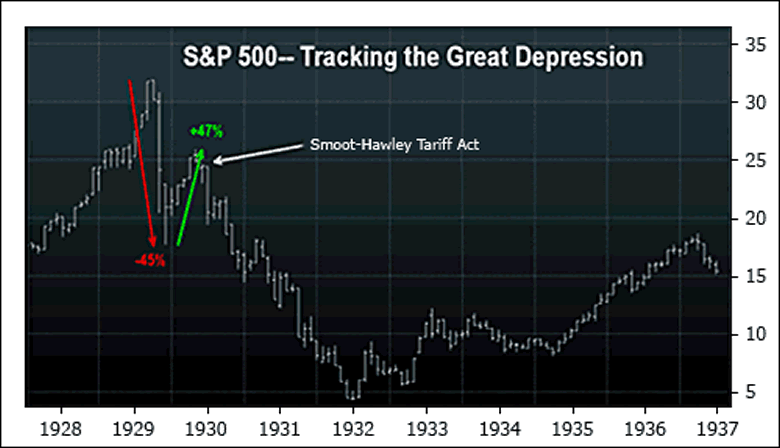China Currency Manipulation About to Trigger Protectionism Crisis
Currencies / China Currency Yuan Nov 15, 2009 - 06:38 AM GMTBy: Bryan_Rich
 I’ve written several times here in Money and Markets about the geopolitical time bomb surrounding China’s currency manipulation. The most recent was in my October 31 column.
I’ve written several times here in Money and Markets about the geopolitical time bomb surrounding China’s currency manipulation. The most recent was in my October 31 column.
I expect this issue to grow in intensity and become a major point of contention for the global economy in the coming year. In recent days the chatter about China and its artificially weak yuan has been picking up.
The Europeans have become more vocal about the problems a weak yuan is causing for their exports. The euro has gained 20 percent against the yuan in the past eight months, putting its exports at a disadvantage. And this week European industry leaders called for the EU to step up its pressure on China to start letting the yuan appreciate again.
The IMF explicitly included commentary on currencies in its recent report to call out China’s currency as “significantly undervalued.”
And with President Obama making his first trip to China next week, the pressure for the U.S. to start taking a harder stance on China’s unfair currency policies are elevating.
Since Obama has taken office, the Chinese have virtually returned their currency to a peg against the dollar. And since March, with the resurgence in global risk appetite and the subsequent bounce in global currencies against the dollar, the Chinese have enjoyed a de facto devaluation against other major trading competitors around the world.
 |
| Will President Obama be able to persuade the Chinese to strengthen the yuan? |
Most importantly, China has kept its exchange rate constant against the recently declining U.S. dollar, the currency of its main trading partner.
A Currency Policy Crisis Is Upon Us …
The world cannot find sustainable growth until economies like the U.S. and China become more self-sufficient. That means deficit trading countries like the U.S. need to start consuming less, saving more and producing more. And export-centric countries, especially China, need to start exporting less and building more domestic-led growth.
It’s clear that the one-way trade dynamic of the past decade is not sustainable …
This is why the G-20 is so concerned about repairing “imbalances.” These trade imbalances are a recipe for more cycles of booms and busts … and with more frequency. And this imbalance problem speaks directly to China … and to a large degree its currency policies.
The global trade imbalances can’t be corrected until China stops controlling the value of its currency — until they stop keeping it artificially weak.
 |
| The U.S. can’t continue exchanging dollars for inexpensive Chinese doodads. |
The U.S. cannot keep sending its money to China in exchange for cheap commoditized goods. And the rest of the world cannot allow China to vacuum up all of the world’s capital by undercutting the rest of the world on exports. It’s an unfair advantage. And it results in a transfer of wealth … a transfer of global economic power … and a deterioration of the world’s economy.
To this point, discussions with China on its currency policy have been diplomatic — mostly spearheaded by the U.S. But now that the world is trying to recover from this broad-spread global recession, patience is growing short with other major countries as well as emerging economies.
Since the crisis began, China has gone back to a peg to the dollar. So with the recent climb in emerging market currencies against the dollar … such as those in Brazil, South Korea, Taiwan and Thailand … the Chinese have effectively devalued the yuan against many of their trading competitors, creating an even greater trade advantage.
That’s why you’re seeing countries in Asia and around the world trying to slow the rise of their currencies by intervening in the currency markets. While others are imposing capital controls and tariffs.
Protectionism on the Rise …
I want to show you a chart of the S&P 500 from the Great Depression years. This gives you a clear understanding of why protectionism is so dangerous.

Source: Bloomberg
The stock market topped in 1929 and fell 45 percent in just three months. Then, it had a sharp correction, recovering 47 percent from the November ‘29 low.
In June 1930, two U.S. Congressmen, Smoot and Hawley, championed a bill to slap a tariff on virtually every foreign good. And that was the catalyst for the second leg down … a massive plunge in the stock market and arguably the catalyst for the Great Depression.
The problem with tariffs is that they tend to bring about retaliation. And that’s exactly what happened. It brought global trade to a standstill.
So what are the possible outcomes from the China currency policy problem?
I think we could see one of two scenarios:
- A very low probability scenario − China floats its currency. That means the Chinese economy is in for dramatically slower growth and the world is in for inflation — higher costs of production and higher final prices on goods. This scenario is a path toward creating sustainable economic growth for world economies. But it would result in a slow rebuilding process with a lower standard of living.
- A high probability scenario − China doesn’t play ball. China either resists all together or it attempts to pacify the world by returning to its slow crawl toward appreciating the yuan (the most likely case). In this scenario, I expect the world to quickly grow impatient, for political tensions to mount, and for major tariffs to hit Chinese goods. I think this has the ability to sink the global economy back into recession, and probably depression.
Both scenarios are major disappointments for those who have anticipated a sharp recovery in global economic activity. That’s a major blow to risk appetite. And a blow to risk appetite is bad for global stocks, bad for commodities and likely good for the safe haven appeal of the U.S. dollar.
Regards,
Bryan
This investment news is brought to you by Money and Markets . Money and Markets is a free daily investment newsletter from Martin D. Weiss and Weiss Research analysts offering the latest investing news and financial insights for the stock market, including tips and advice on investing in gold, energy and oil. Dr. Weiss is a leader in the fields of investing, interest rates, financial safety and economic forecasting. To view archives or subscribe, visit http://www.moneyandmarkets.com .
© 2005-2022 http://www.MarketOracle.co.uk - The Market Oracle is a FREE Daily Financial Markets Analysis & Forecasting online publication.



